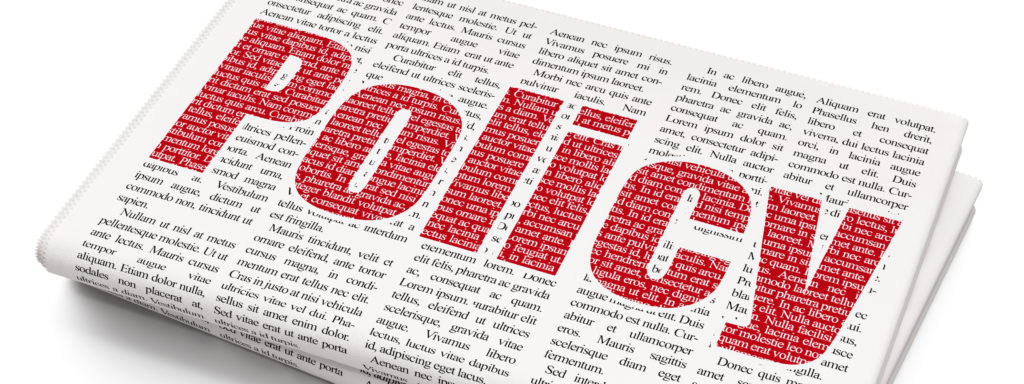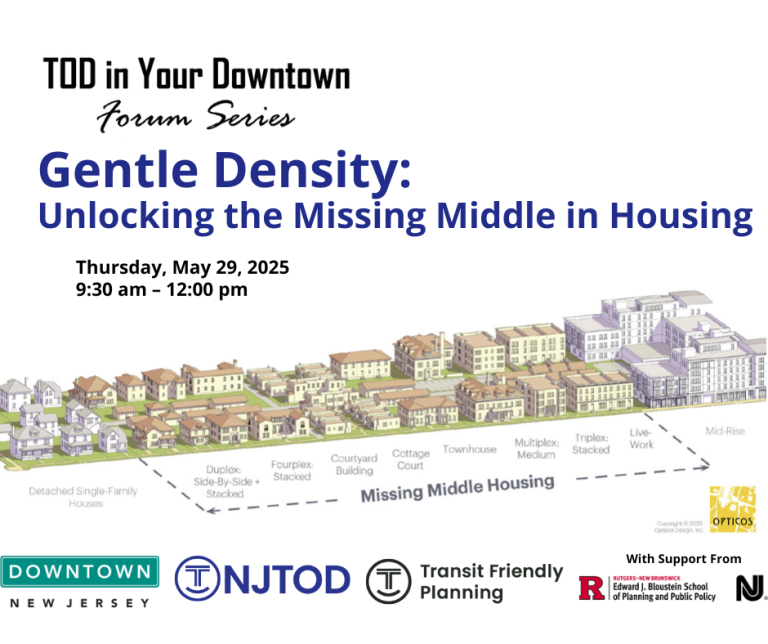DNJ Makes Policy Recommendations to Governor Murphy
By Bob Zuckerman
Executive Director
South Orange Village Alliance
Feb. 5, 2018
Downtown New Jersey (“DNJ”), a statewide non-profit membership organization comprised of individuals, businesses, developers, government agencies, and local entities that are passionate about downtowns, has made policy recommendations to Governor Murphy’s administration that the organization hopes will result in a renewed commitment to the state’s downtowns from Trenton. In a memo that was issued to Murphy’s transition team last month, DNJ provided the new administration with insights into legislative, regulatory, and administrative initiatives that impact the state’s downtown commercial districts.
“DNJ is extremely pleased that the new Murphy administration is interested in taking a closer look at policies that could help our downtowns prosper,” said Courtenay Mercer, DNJ executive director. “While many of our municipality’s downtowns have seen an increase in interest and investment over the past several years, many others are still in desperate need of commercial revitalization. From what we’ve heard so far from Governor Phil Murphy and Lieutenant Governor Sheila Oliver, we are very hopeful that this new administration will place a major emphasis on revitalizing our commercial corridors and downtown districts.” DNJ President Robert Goldsmith added that “New Jersey’s downtown stakeholders are looking forward to a policy agenda that is much more inclusive of their interests than the previous administration, and we are excited to work with them on a shared vision of what our great downtowns can be.”
The transition memo focused on six key policies and initiatives that DNJ believe are critical to the future of the state’s downtowns:
- Urban Enterprise Zone – In 2011, the Christie Administration released a report questioning the efficacy of the UEZ program, and subsequently curtailed significant aspects of the long-standing program intended to stimulate economic activity in distressed areas. Since that time, five municipalities’ UEZs have since expired, causing them to lose the critical 50% sales tax incentive that was provided by the UEZ. Accordingly, DNJ has asked the Murphy administration to work with the Legislature to introduce a reformed and streamlined UEZ program that supports the economic development goals of both the distressed localities and the State.
- Payment in Lieu of Taxes (PILOT) program – A PILOT encourages developers to accept the substantial risks and additional costs that come with most redevelopment projects through a reduced overall tax burden, while still allowing the municipality to obtain reasonable income from the property. A recent proposal, Assembly Bill 326, required municipalities to share certain payments received in lieu of property taxes with school districts which is not currently the law. DNJ believes that this and any other proposals to redistribute PILOT proceeds should be reviewed carefully to ensure that the municipal incentive is not so diminished that it renders the PILOT useless.
- Municipal Tax Incentives and Prevailing Wage – For decades, NJ has experienced notable success with redeveloping many of its distressed areas by affording municipalities the ability to provide tax incentives in the form of abatements or exemptions to redevelopers. Recent legislative attempts to impose prevailing wage upon projects could serve to neutralize the benefit of the abatement/exemption by imposing what some believe to be additional costs in the range of 20-30%. DNJ believes that setting strict requirements for prevailing wage, irrespective of a project’s scale, marketability, and feasibility is imprudent. Instead, municipalities should continue to be given the discretion to make determinations regarding prevailing wage based on local circumstances, so as to avoid putting high-risk project in jeopardy.
- Main Street New Jersey (MSNJ) program – Main Street New Jersey was a very successful program that provided technical assistance for downtown commercial revitalization in 46 municipalities. Unfortunately, the Christie Administration terminated funding and operations of the Main Street New Jersey program as of December 31, 2016. DNJ strongly supports the reinstatement of the MSNJ program, and the full restoration of its funding, with an eye towards an increase in order to allow the program to meet historic staff levels and provide additional resources and assistance to NJ’s main streets.
- Liquor License Reform: New Jersey’s liquor license regulations are among the most restrictive in the country. In fact, the cost of a license in many of our municipalities can easily soar into the six or seven figures – if they are even available. Liquor license restrictions are seen to impede the economic development of many of our communities; especially our downtowns. DNJ is encouraging the Murphy administration to study the issue of license reform, since liquor licenses are an economic tool for our downtowns throughout New Jersey.
- Historic Tax Credits: Thirty-four states have a historic preservation tax credit. New Jersey is not one of them. Without a historic preservation tax credit, New Jersey is missing out on a proven tool for economic growth and revitalization. In 2011, the NJ Legislature passed the Historic Property Tax Credit Act with strong bipartisan support. However, included as part of the Democratic package for economic development, Governor Christie vetoed the state historic preservation tax credit. DNJ is encouraging the Murphy administration to support this important tool that encourages the rehabilitation of critical historic resources while promoting economic development in our downtowns.
For full text of the memo to Governor Murphy, visit www.downtownnj.com/dnj-murphy-letter_final-2017-01-05
About Downtown New Jersey
Downtown New Jersey (DNJ) is a non-profit membership organization of individuals, businesses, developers, government agencies, and local and regional entities that are passionate about downtowns. Downtowns reflect our communities’ unique identities, provide a focal point, a convenient local place of commerce, and offer a sense of place where people can gather and truly be a community. DNJ provides advocacy, education, and technical assistance resources dedicated to ensuring the vitality of our downtowns. For more information, visit www.downtownnj.com.
Contact:
Courtenay Mercer, Executive Director
(609) 472-0356



